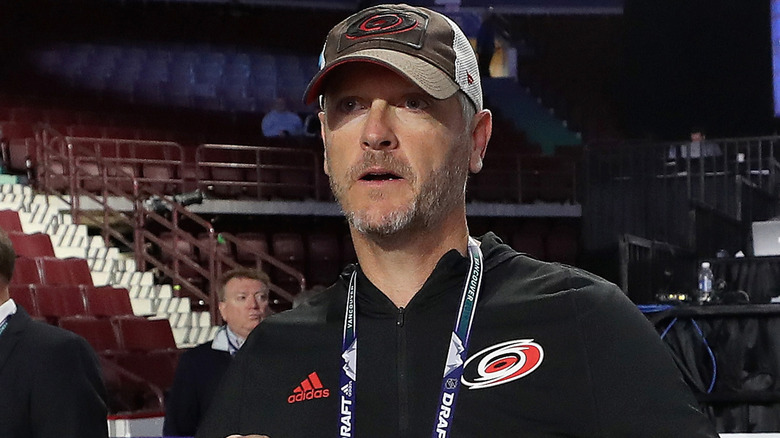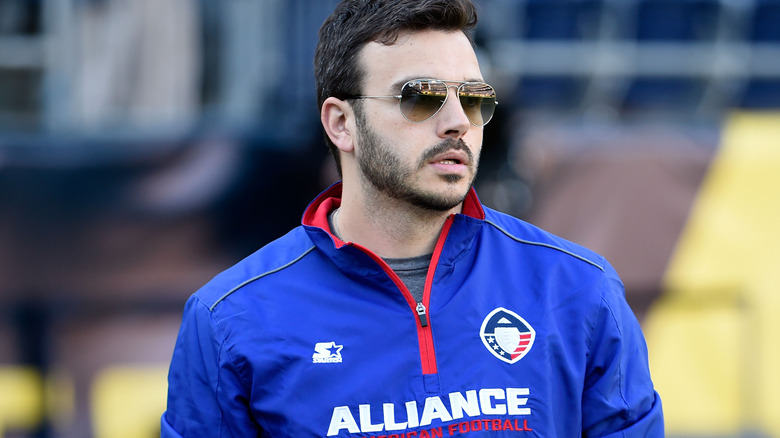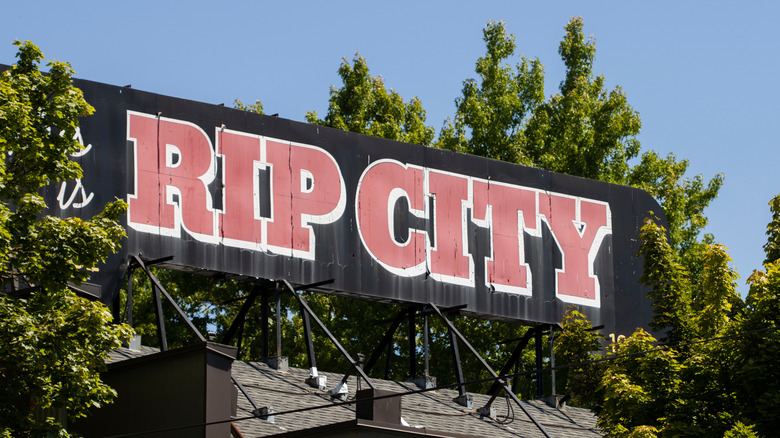Texas Billionaire Tom Dundon's Investment Past Could Worry Trailblazer Faithful
As every sports fan knows, there are good coaches and bad coaches — and the same goes for good billionaires and bad billionaires. With that said, sports teams don't exactly come cheap, and are therefore often the asset-level property of the world's mega-rich. Case in point, Tom Dundon, a Texas-based billionaire known for owning the NHL's Carolina Hurricanes, who is currently poised to own the NBA's Portland Trail Blazers. However, it's up to sports fans to decide exactly what cut of billionaire Dundon is — especially after checking out his questionable past.
Dundon made his billions from private equity investments and subprime auto lending, which many may already consider questionable enough. For those on an average U.S. income (like what the average U.S. thirtysomething makes), the act of breaking down the 20/3/8 car-buying rule on an unrealistic 50/30/20 budget is already a crime in and of itself — without also being on the hook for an unfair loan. However, Dundon has another corporate misdeed lingering in his not-so-distant past that has nothing to do with offering too-steep loans: a massive corporate bankruptcy complete with attendant lawsuits. More specifically, Dundon made his offer on the Trail Blazers only after being involved in the bitter, bankrupted end of the Alliance of American Football (AAF), a minor league football outfit he invested in during 2019.
Understanding Dundon's role in the AAF's downfall
Sports fans may be weary of Dundon taking over their team due to the long line of seemingly cold-blooded scandals clinging to him from the end of the AAF in 2019. While the minor league is beloved when it comes to baseball, it hasn't existed for long when it comes to football. Co-founders Charlie Ebersol (Dick Ebersol's son) and Bill Polian developed the AAF as a 10-week minor league NFL spring feeder. Inspired by his own father's (and Vince McMahon's) failed XFL league, Ebersol and Polian built the league in combination with an underwhelming statistics app startup. However, when the AAF was about to launch, key funding disappeared thanks to a top investor ending up on the hook for bank fraud. At that point, the AAF needed an emergency last-minute investment, which came in the form of a promised $250 million from Dundon.
Ultimately, Dundon cut his promise short after an initial $70 million investment to keep the AAF afloat. Dundon's controlling interest saw him and his Dallas-based team negotiating all of the AAF's deals — and reportedly becoming increasingly intense over every expense approval. Perhaps due to the lack of profitability, Dundon ultimately ended the AAF with two weeks left in the season. Players were forced to vacate their hotel rooms immediately, and some were even reportedly charged for full bills in error. Dundon shut down the league and ended what were supposed to be three-year player contracts overnight.
How Dundon's past behavior could affect the Trail Blazers
For many, Dundon is a billionaire with an insatiable drive to win. However, while some might argue that Dundon had to shut down the AAF due to the fact bills were not current, and the team had to pay to play on TV, another angle is that Dundon might have ultimately benefitted from its bankruptcy. In mid-March of 2019, the AAF filed for Chapter 7 bankruptcy. In 2022, Dundon and his team were sued by Randolph Osherow, the U.S. trustee overseeing that bankruptcy. While a judge dismissed Dundon's countersuit towards Ebersol in 2025, Osherow's suit holds a chilling accusation that sports fans may not digest. Osherow's suit claims that Dundon refused to engage with interested outside investors before filing for bankruptcy.
If Dundon's league shutdown was a purposeful attempt to gain the league's assets through bankruptcy, then he could have committed fraud, even though this is a common practice for many big-league private equity firms. Ultimately, Osherow's $184 million suit against Dundon is a pricey reminder that not so long ago, athletes were, unfortunately, on the receiving end of Dundon's less-than-stellar sports management. With that said, as of mid-September 2025, Dundon added another financial heavyweight to his Trail Blazers purchasing team –The Cherng Family trust. Andrew and Peggy Cherng are the founders of Panda Express, and their financial involvement might just make this sale go down easier.


